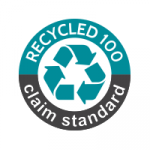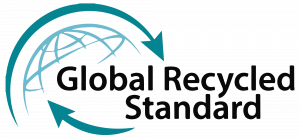SUSTAINABLE DEVELOPMENT
OUR APPROACH
Over the last twenty years, LA MANUFACTURE AGENCY has never ceased keeping up with and engaging all the French fashion production brands, providing them with customized textile creations as the industry has evolved and developed through the latest in research and development.
La Manufacture Agency has always known how to assist the brands in fulfilling their desire to find materials that are more ethically and environmentally responsible.
Over the last six years, such desires have steadily grown as every brand has affirmed their environmental awareness and their responsibility for what they produce by rigorously selecting the sources of their products, the materials used to make them, and the ways they are produced. They have done so paying rigorous attention to these specific demands: a more ethical product, consumed more responsibly, whose production is limited in its impact on our environment to the maximum extent possible.
We have been able to develop correspondingly specific approaches to respond to these ever growing demands, thanks to an intensive investment in both human resources and industrial capacity by our partners and their factories. They have thrown themselves enthusiastically into the project of building a better future by investing in the evolution of their industry – changing their methods of production where necessary, combining their efforts to help the project along: to produce better, to consume better and thereby respond to these demands with ease.

This challenge has required our clients and partners in their design studios and production plants to take account of new professional organizations. Our company understood that the brands needed to get an update and to be kept informed about these developments. So it organized a conference of the Institut Francais de la Mode in early January 2019 to educate and raise awareness about the intricacies of environmentally responsible supply chains and production lines in the fashion industry, about the many and varied links that make up those chains and about how to work better to produce a more environmentally responsible product at the end of the line. The conference was a great success, with more than 150 participants representing about 40 of the major brands in the French market taking part, which showed the deep engagement with these issues on the part of these brands.

This challenge has required our clients and partners in their design studios and production plants to take account of new professional organizations. Our company understood that the brands needed to get an update and to be kept informed about these developments. So it organized a conference of the Institut Francais de la Mode in early January 2019 to educate and raise awareness about the intricacies of environmentally responsible supply chains and production lines in the fashion industry, about the many and varied links that make up those chains and about how to work better to produce a more environmentally responsible product at the end of the line. The conference was a great success, with more than 150 participants representing about 40 of the major brands in the French market taking part, which showed the deep engagement with these issues on the part of these brands.
ENVIRONMENTALLY RESPONSIBLE
Under the banner of what is frequently referred to as “environmentally responsible” there are a variety of specific labels and certifications for fabrics based on the nature and source of their component materials and the ethical practices followed in producing them.




Organizations such as RCS or GRS verify the efforts made by each factory to improve its production techniques, the traceability of its input materials and the choice of the chemical processes required at each stage of production. Their verification may also include exercising a right of over-sight of the treatment of personnel (by an in-factory social compliance audit). These organizations provide producers with a certification (an RCS or GRS certification) that can accompany every fabric they produce the whole way along its road to market in the form of a label guaranteeing that the final product results from an ethical and consciously planned production process, one combining respect for the environment with ethical choices in the selection of the fibers used on the basis of the traceability of each of their components and how they are produced.
COTTON
Under the banner of what is frequently referred to as “environmentally responsible” there are a variety of specific labels and certifications for fabrics based on the nature and source of their component materials and the ethical practices followed in producing them.
WOOL
In the world of woolen fabrics, for example, the use of recycled or reconstituted wool is preferred and some of our integrated factories have already for a decade now been fully committed to the use of such recycled wool to limit waste and over-consumption.
POLYESTER
It is the same with recycled polyester which has been in great demand in the world of synthetic fabrics.
LA VISCOSE
Viscose, a synthetic fiber (made of cellulose from natural sources such as wood) which in the past had the disadvantage of requiring a large amount of water for its production, has been the subject of significant technical advances that have made it more attractive and given it new life. It is now produced with a minimum of water consumption and reforestation is ensured in order to provide for perennial forest cover – while respecting principles of ethical production at every step.
So for this fiber we now have FSC certification or Eco Vero from the Lenzing brand which ensures that reforestation is taking place and that ethical processes are used from the stage of production of the fibers through to the production of the finished garments which may carry these labels.
Such certifications are so numerous because technological progress is being made every day and the textile industry is experiencing major changes all the time. That is why our company keeps a close watch on these issues and remains engaged, working with factories that are leaders in this area, to always better serve the needs of our clients and partners (as is our pleasure). We want to contribute in all the ways we can to bringing about these necessary changes – because our future is an ethical and a global one!